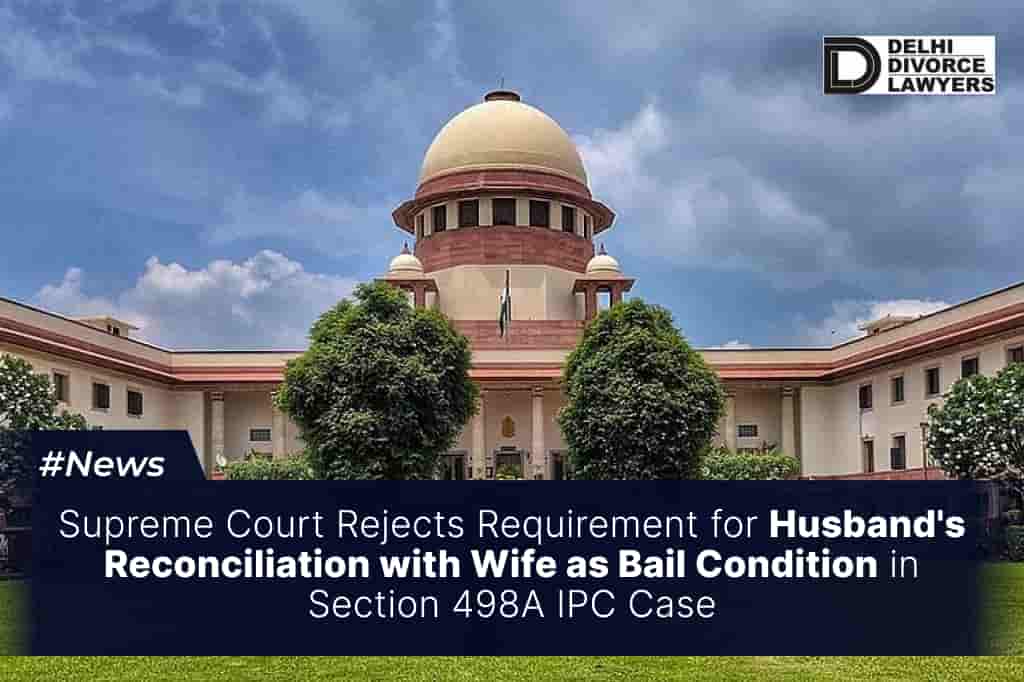In a recent legal judgment, the Supreme Court has ruled against the imposition of a condition that compels an accused husband, seeking anticipatory bail under Section 498A of the IPC, to bring his wife to his residence and ensure her well-being and dignity. The case was deliberated by a Division Bench, comprising Justices Bela M. Trivedi and Satish Chandra Sharma.
The specific case involved the appellant, the accused husband, who had filed for anticipatory bail in the High Court of Jharkhand, Ranchi Bench. Although the High Court granted bail, it attached a unique condition to the order. This condition mandated the husband to reside with his wife at his home, assuming responsibility for her sustenance while preserving her dignity and honor. To clarify, the condition was articulated as follows:
“Accordingly, the petitioner is directed to surrender in the Court within six weeks from today and in the event of his arrest or surrendering, he will be enlarged on bail on satisfying the trial court that the petitioner has taken the opposite party no.2 to his house at Bandra locality of Ranchi and keeping and maintaining her with full dignity and honor as his lawful wife.”
Subsequent to these developments, the husband lodged an appeal with the High Court, urging a review of the aforementioned order. In the plea seeking a revision of the order, the husband asserted that he had secured a residence and was prepared to meet his responsibilities towards his wife. Conversely, the wife conveyed her readiness to reconcile and recommence their marital life, provided that her husband agreed to join her in their mutual abode. Despite these submissions, the High Court rejected the husband’s plea, underscoring the appellant’s firm stance in refusing to resume cohabitation with his wife at their shared residence.Top of Form
“In view of the adamant attitude of the appellant in not resuming the conjugal life with the opposite party No.2 in the house of the appellant, where the opposite party No.2 was staying, his petition could not be considered.,” the High Court held.
Given this background, the issue was elevated to the Supreme Court. The Court categorically stated that imposing such a condition is not acceptable when issuing anticipatory bail. Furthermore, this condition should not serve as grounds for dismissing the appellant’s plea.
“In our opinion, neither such condition should have been imposed by the High Court while granting an anticipatory bail, nor such could be a ground for rejection of the petition filed by the appellant.”
In view of this, while setting aside the impugned order, the Court granted bail to the accused.

